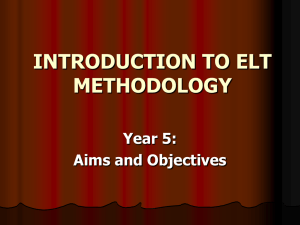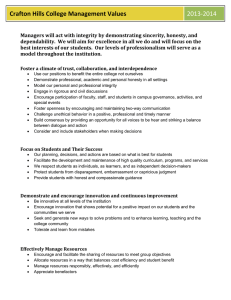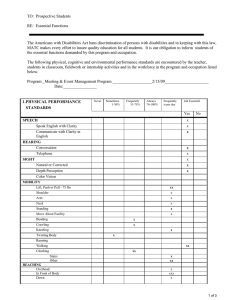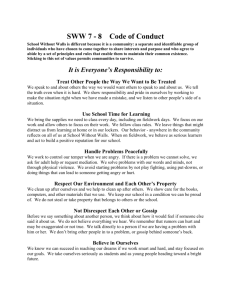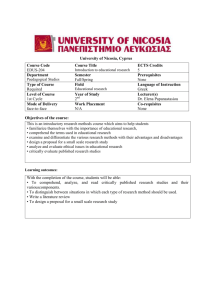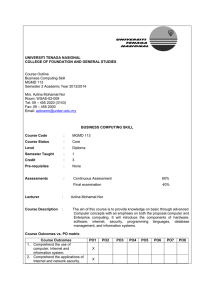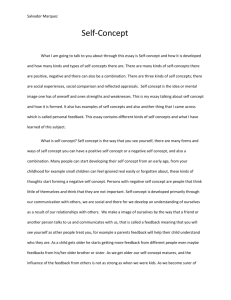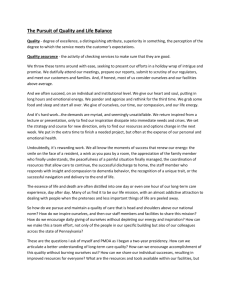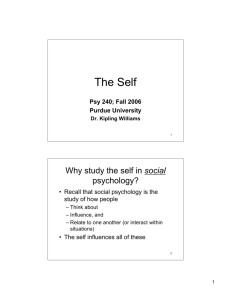Teen Leadership - The Flippen Group
advertisement
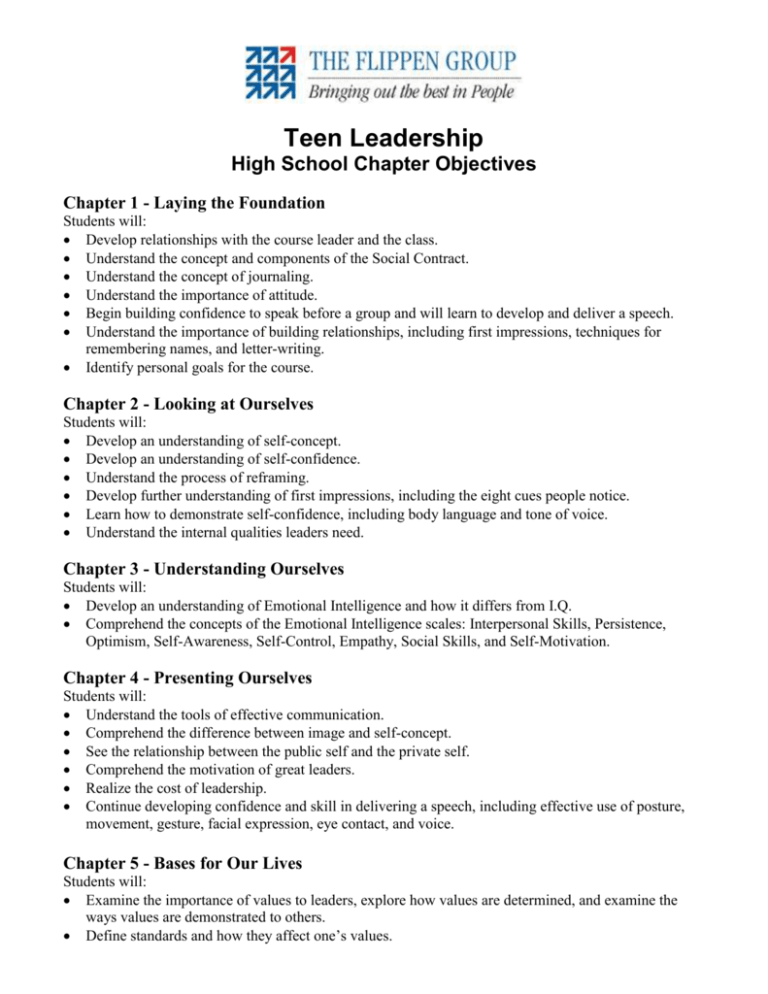
Teen Leadership High School Chapter Objectives Chapter 1 - Laying the Foundation Students will: Develop relationships with the course leader and the class. Understand the concept and components of the Social Contract. Understand the concept of journaling. Understand the importance of attitude. Begin building confidence to speak before a group and will learn to develop and deliver a speech. Understand the importance of building relationships, including first impressions, techniques for remembering names, and letter-writing. Identify personal goals for the course. Chapter 2 - Looking at Ourselves Students will: Develop an understanding of self-concept. Develop an understanding of self-confidence. Understand the process of reframing. Develop further understanding of first impressions, including the eight cues people notice. Learn how to demonstrate self-confidence, including body language and tone of voice. Understand the internal qualities leaders need. Chapter 3 - Understanding Ourselves Students will: Develop an understanding of Emotional Intelligence and how it differs from I.Q. Comprehend the concepts of the Emotional Intelligence scales: Interpersonal Skills, Persistence, Optimism, Self-Awareness, Self-Control, Empathy, Social Skills, and Self-Motivation. Chapter 4 - Presenting Ourselves Students will: Understand the tools of effective communication. Comprehend the difference between image and self-concept. See the relationship between the public self and the private self. Comprehend the motivation of great leaders. Realize the cost of leadership. Continue developing confidence and skill in delivering a speech, including effective use of posture, movement, gesture, facial expression, eye contact, and voice. Chapter 5 - Bases for Our Lives Students will: Examine the importance of values to leaders, explore how values are determined, and examine the ways values are demonstrated to others. Define standards and how they affect one’s values. Understand moral relativism. Determine what it means to live a principled life and will decide on principles for their lives. Write their personal mission statements. Chapter 6 - Managing Our Money Students will: Develop an understanding of the value of money and how their use of money demonstrates their values. Understand the principles of the free-enterprise system. Examine the role financial decisions play in leadership. Understand the aspects of deficit and credit spending. Examine the processes of purchasing and car and purchasing a home. Understand the concept and value of budgeting and saving. Chapter 7 - Interactions with Others Students will: Understand the ways peer pressure affects them and will evaluate ways to handle peer pressure. Understand the concept of defending skills and will practice demonstrating these skills. Understand the concept of rescuing skills and will practice demonstrating these skills. Chapter 8 - Creative Thinking Students will: Demonstrate an understanding of lateral thinking, vertical thinking, and brainstorming. Understand the concept and effectiveness of team problem-solving. Define and understand “paradigm.” Chapter 9 - Taking Responsibility Students will: Understand that they are responsible for their own thoughts, attitudes, and actions. Understand how “thought replacement” can change attitude. Define and explain “Rational-Emotive Theory.” Understand that choices have consequences. Chapter 10 - Looking at Relationships Students will: Understand the importance of affirming and listening and will demonstrate these skills. Identify ways to make family relationships more meaningful. Understand the family types described in the Circumplex Model. Chapter 11 - Getting a Vision Students will: Understand the definition of vision, how vision influences the future, and how to develop a vision for their lives. Understand how their approach to life determines how they accept responsibility and how it affects the way they react to people and events around them. Be able to identify the five steps in developing a vision. Understand ways to balance dreams with reality. Understand the importance of having a sense of purpose.
